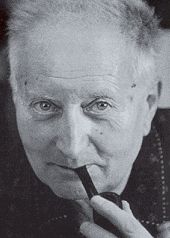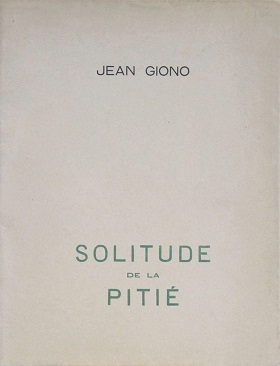
Jean Genet was a French novelist, playwright, poet, essayist, and political activist. In his early life he was a vagabond and petty criminal, but he later became a writer and playwright. His major works include the novels The Thief's Journal and Our Lady of the Flowers and the plays The Balcony, The Maids and The Screens.

Joseph Kessel, also known as "Jef", was a French journalist and novelist. He was a member of the Académie française and Grand Officer of the Legion of Honour.

Count Jean Bruno Wladimir François-de-Paule Lefèvre d'Ormesson was a French writer and novelist. He authored forty books, was the director of Le Figaro from 1974 to 1977, as well as the dean of the Académie Française, to which he was elected in 1973, until his death, in addition to his service as president of the International Council for Philosophy and Humanistic Studies within UNESCO (1992–1997).

Jean Giono was a French writer who wrote works of fiction mostly set in the Provence region of France.
Félicien Marceau was a French novelist, playwright and essayist originally from Belgium. His real name was Louis Carette. He was close to the Hussards right-wing literary movement, which in turn was close to the monarchist movement. He was born in Kortenberg, Flemish Brabant.

Michel Déon was a French novelist and literary columnist. He published over 50 works and was the recipient of numerous awards, including the Prix Interallié for his 1970 novel, Les Poneys sauvages. Déon's 1973 novel Un taxi mauve received the Grand Prix du roman de l'Académie française. His novels have been translated into numerous languages.

Richard Millet is a Lebanese-French author.

Laurence Cossé is a French writer, who published mainly novels.

Maurice Jaubert was a prolific French composer who scored some of the most important films of the early sound era in France, including Jean Vigo’s Zero for Conduct and L'Atalante, and René Clair’s Quatorze Juillet and Le Dernier Milliardaire. Serving in both world wars, he died in action during World War II at the age of 40.
Le Chant du monde is a 1965 Italian film directed by Marcel Camus. It is based on the novel The Song of the World by French author Jean Giono.

Paule Constant is a French novelist.

Patrick Grainville is a French novelist.

The French writer and folklore collector Henri Pourrat was born in 1887 in Ambert, a town in the mountainous Auvergne region of central France. He died near Ambert in 1959.

Jean-Noël Pancrazi is a French author.
The Grand prix Jean Giono is a French literary prize. It was established in 1990 at the initiative of Michel Albert, to honour the writer Jean Giono. Since 1992 it consists of two categories: the Jean Giono Grand Prize and the Jury Prize. The winner of the Grand prix Jean Giono receives 10,000 euros.

The Solitude of Compassion is a 1932 short story collection by the French writer Jean Giono. The stories focus on rural life in Provence. The book was published in English in 2002, translated by Edward Ford.

Alain Blottière is a French writer
François Garde is a French writer and high-ranking official
Jean Giono was a French author who wrote works of fiction mostly set in Manosque in the Provence region of France.
Les Vraies Richesses is a 1937 book by the French writer Jean Giono. It is a celebration of the countryside, especially in the author's native Provence, which is contrasted with the city.














